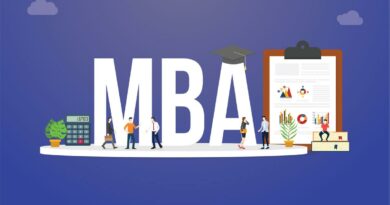Finding the Right Balance between Hard and Soft Skills
As companies expand, managing their workforce becomes challenging, including conducting office evaluations, accommodating employee requests, and providing job training in new areas. To address these difficulties, companies continually re-evaluate their hiring strategies and pre-employment evaluations to find candidates who can drive the company’s growth.
With the rise of technology, the job application process has become more accessible for candidates across different industries. However, this also means that competition among job seekers is becoming more intense. In this talent war, HR must find a way to choose the right person for the job. The answer lies in a candidate’s skill set.
Even though managing talented employees who may be difficult can be a challenge, organizations cannot afford to lose them because they are invaluable. What sets them apart from the rest is their unique combination of hard and soft skills.
What are soft skills?
Soft skills are a combination of personal traits and social skills that impact how you interact in the workplace, handle responsibilities, and strive for improvement. These skills cannot be taught in a day, but rather developed through life experiences.
Soft skills that should be included in your resume regardless of the industry are:
-
Time management: efficiently and effectively using your time on the job -
Communication: demonstrating good listening and response skills to customers and colleagues -
Adaptability: being flexible and able to change to succeed in the workplace -
Problem-solving skills: being able to find innovative solutions to problems -
Teamwork: working well with others and showcasing teamwork skills -
Creativity: bringing new and creative ideas to the table -
Leadership: mentoring, training, and guiding others -
Interpersonal skills: having strong relationships and making a positive impression on those around you -
Work ethic: valuing work and putting effort into achieving results -
Attention to detail: being thorough and accurate in your work.
To showcase these soft skills in your resume, tailor them to the specific job you’re applying for and provide examples and experiences to back them up.
How to Highlight Soft Skills on Your Resume?
When crafting your resume, make sure to tailor your soft skills to the job you are applying for. The more specific you are, the more attention-grabbing your resume will be.
To make your soft skills credible, provide examples and experiences that support them. For instance, you can highlight your teamwork skills by mentioning a group project you worked on in the past.
What are Hard Skills?
Hard skills are specific abilities that demonstrate a person’s ability to perform certain tasks effectively. For example, if you want to hire an accounts assistant, you’ll look for someone who is skilled in working with numbers and can read financial statements. These types of skills are crucial for success in a particular field.
Some examples of hard skills include:
-
Technical/Computer Skills: such as web development (HTML, C++, Javascript), STEM skills, automated billing systems, payment processing, CRM platforms, etc. -
Analytical Skills: such as research, forecasting, data representation, resource management, data engineering, metric interpretation, reporting, diagnostics, etc. -
Marketing Skills: including SEO, SEM, PPC, email marketing, writing, social media management, CRM, UX Design, funnel management, google analytics, data visualization, etc. -
Management Skills: such as business strategy, project management, financial modelling, performance tracking, budgeting, office management, negotiating, logistics, etc. -
Language Skills: including proposal writing, email writing, journalism, academic writing, storytelling, business report writing, content management, etc.
To incorporate hard skills in your resume, you can:
- Read the job description and identify relevant skill keywords.
- Make a list based on these keywords.
- Highlight your strengths in your resume.
- Include the most relevant hard skills in the “skills section” of your resume.
- Use examples in the “achievements section” to showcase your professional skills.
- Mention 2-3 skills in the summary statement of your professional profile.
Why are Hard and Soft Skills Important for Hiring Managers?
Hiring managers use various methods to find the right candidate in today’s competitive job market. Employee referrals, either through social media or company programs, remain one of the most effective sources of hiring. Employers are now turning to social referrals to expand their reach beyond their own networks.
However, a successful social recruiting strategy requires organizations to engage with their audience in two-way communication through various methods. Employee referrals are becoming increasingly important for top talent and target candidates who spend time on social media.
To stand out in the job market, applicants should emphasize both their hard and soft skills in their resumes. This way, even if they lack a specific hard skill required by the company, they can balance it with a strong soft skill.
For example, if the job requires working on group projects, the candidate should showcase their experience as a team player and strong communication skills. Although employers typically consider both technical and soft skills, they often place a higher value on the latter.
Employers pay close attention to traits such as teamwork, communication, creativity, work ethic, leadership, time management, problem-solving abilities, conflict resolution, empathy, and diligence. To succeed in their desired full-time or part-time job, it’s important for job seekers to have a balanced combination of both hard and soft skills.



